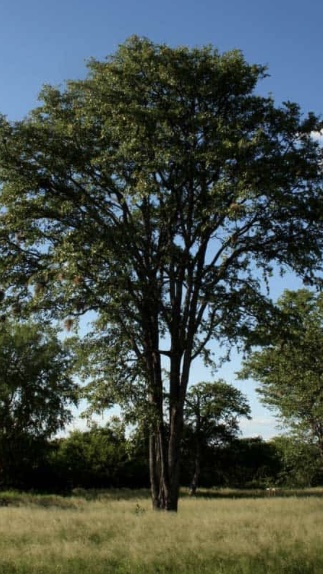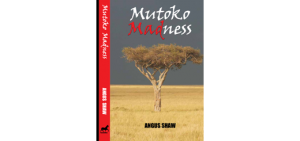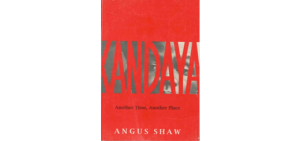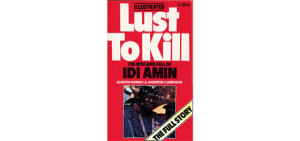What’s the verdict on them there wigs?
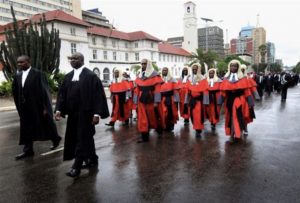 Our justice system is considering whether to rid our judges of bleached horsehair wigs, a vestige of colonialism.
Our justice system is considering whether to rid our judges of bleached horsehair wigs, a vestige of colonialism.
As Zimbabwe approaches the 43rd anniversary of independence from Britain on April 18, a survey of opinion on the matter has been done, but not in a high profile way and no outcome has been revealed.
It hasn’t been widely publicised and it isn’t clear exactly who was being asked. In the end policy decisions are usually left to interested parties at the top of the heap and the common man is unlikely to care either way on this one.
He is too busy wringing his hands over putting food on the table and all the things going with it – vital health amenities, ordinary education and a better wellbeing for his family.
 When Chief Justice Luke Malaba (pictured, with President Mnangagwa) announced with little fanfare the setting up of a ‘Wigs Committee’ last year one sentiment on social media was: Throw them away now and concentrate on real issues.
When Chief Justice Luke Malaba (pictured, with President Mnangagwa) announced with little fanfare the setting up of a ‘Wigs Committee’ last year one sentiment on social media was: Throw them away now and concentrate on real issues.
 Procured only from bespoke outfitters in London’s exclusive Inns of Court district, a good wig costs about $2,500. According to the auditor general’s office we spent some 155,000 bucks on wigs in 2019 just as civil servants in the justice ministry were crying poverty.
Procured only from bespoke outfitters in London’s exclusive Inns of Court district, a good wig costs about $2,500. According to the auditor general’s office we spent some 155,000 bucks on wigs in 2019 just as civil servants in the justice ministry were crying poverty.
Judges, still with wigs on their heads, will be encountering what is called “survival crime” in the battered economy. As well as corruption, cases of theft, housebreaking, car jacking, swindling and plain dishonesty are rising sharply.
High level corruption, of course, doesn’t often end up in court and, in any case, the courts have been ‘captured’ to favour the ZANU PF government of President E.D. Mnangagwa, his opponents say.
With elections coming up we already have quasi ruling party support groups: WomenforED, NursesforED, FarmersforED, DrivinginstructorsforED etc – ED being the sloganised form of Emmerson Dambudzo M’s first initials.
JudgesforED? Not yet. Too blatant.
If you ask me – and they haven’t – I’ll tell them all about court proceedings and the brilliant Rastafarian lawyer who was barred from the High Court until he cut off his braids. What about the judges, he protested? At least my own hair is natural.
The Australians have found that the more they relaxed dress rules in court the harder it became to dispense justice. Open neck shirts caused a lack of respect by the accused to a point where judgements were contested more often. Alleged miscreants began swearing at poorly dressed presiding officers in four letter words.
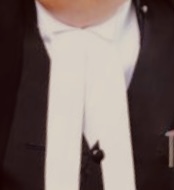 For the most part, the Aussies got rid of wigs but collars and ties remain in the mainstream, not necessarily in the sweltering outback. In Canada and other former British territories in the club of Commonwealth nations gowns and the white jabot, a formal bib fronting the chest, are worn. (Don’t spill ketchup on your jabot while having a snack at the mid-morning recess.)
For the most part, the Aussies got rid of wigs but collars and ties remain in the mainstream, not necessarily in the sweltering outback. In Canada and other former British territories in the club of Commonwealth nations gowns and the white jabot, a formal bib fronting the chest, are worn. (Don’t spill ketchup on your jabot while having a snack at the mid-morning recess.)
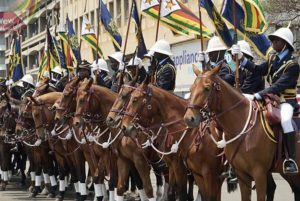 Many erstwhile colonies have a quaint affection for old Britishness. Zimbabwe has a mounted police escort for ceremonial occasions whose officers wear pith helmets and hold up pikes. Vintage British cars have a place in ceremonies too.
Many erstwhile colonies have a quaint affection for old Britishness. Zimbabwe has a mounted police escort for ceremonial occasions whose officers wear pith helmets and hold up pikes. Vintage British cars have a place in ceremonies too.
It is not about good manners and decorum. Our politicians have neither.

